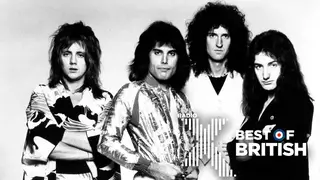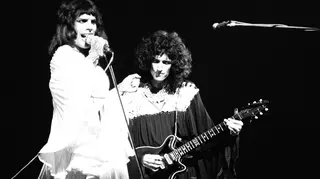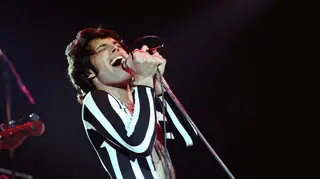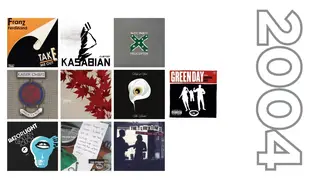Freddie Mercury's final statement and the impact of the Queen legend's passing 30 years on
24 November 2021, 16:09 | Updated: 24 November 2021, 16:45
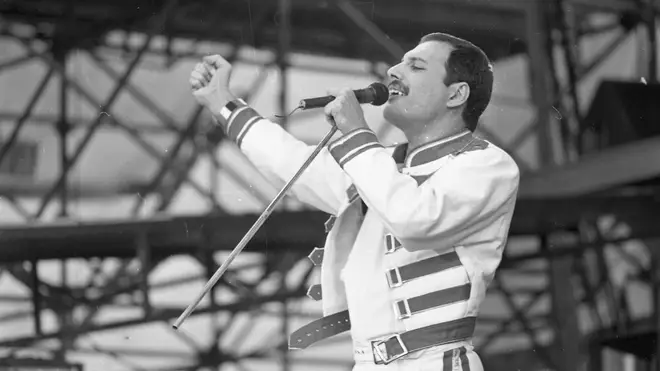
30 years on from his tragic death, we look back at the statement the Queen frontman gave on HIV and the impact it had on the world.
Listen to this article
This week marks 30 years since Freddie Mercury tragically passed away on 24 November 1991.
The Queen frontman is considered one of the most legendary British artists of all time and just before losing his life, he released a statement revealing his HIV+ status to the world.
It marked a watershed moment, with Mercury's brave decision helping to somewhat tackle the stigma towards AIDS, while leading to chain of events which helped fund research and bring about more awareness for the once deadly disease.
Find out the heartbreaking final message left behind by the Queen frontman and the impact of his passing today.
READ MORE - Freddie Mercury: In his Own Words
When did Freddie Mercury die?
The Queen frontman died from bronchial pneumonia relating to AIDS on 24 November 1991.
How old was Freddie Mercury when he died?
Freddie Mercury died at just 45 years of age.
What was Freddie Mercury's final statement?
Freddie Mercury's released a statement just one day before he died, which read: "Following enormous conjecture in the press, I wish to confirm that I have been tested HIV positive and have AIDS.
"I felt it correct to keep this information private in order to protect the privacy of those around me.
"However, the time has now come for my friends and fans around the world to know the truth, and I hope everyone will join with me, my doctors and all those worldwide in the fight against this terrible disease."
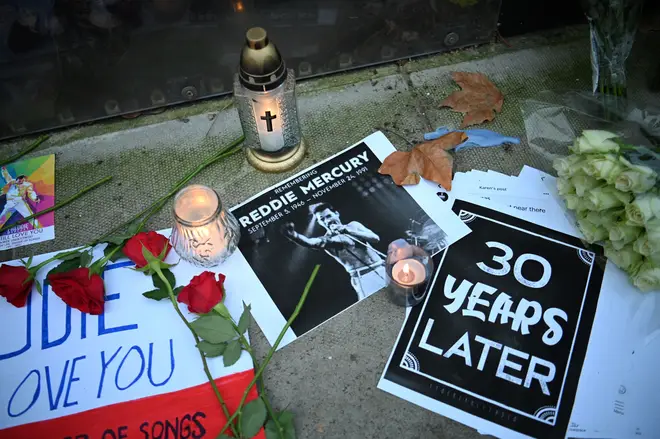
What was the impact of Freddie Mercury's message?
Freddie Mercury's brave press release and his subsequent passing not only led to mourning from his millions of fans across the globe, but it helped catapult the topic further into public consciousness.
Shortly after, Queen's Bohemian Rhapsody single was re-released and went to Christmas number one, which raised over £1million to support the work at the Terrence Higgins Trust.
Most notably, Freddie's passing led to The Freddie Mercury Tribute Concert, which raised further awareness and funds for the disease.
His untimely death also led the surviving Queen members to launch The Mercury Phoenix Trust, which still raises funds and awareness for the cause today.
READ MORE: The biggest factual inaccuracies in the Bohemian Rhapsody film
Speaking on the immediate impact after his death, Deborah Gold, the chief executive of the National Aids Trust told PA: "Freddie Mercury has really had a lasting legacy.
"He’s one of a small handful of people who is truly enormously internationally well-known, and so at the time his death had a huge impact.
"In the short period of time before he died, he was open about the fact that he had Aids, and when those moments happen, it’s possible to grab hold of them and use them for something else.
“I think the other members of Queen and his friends really did that through their work at the Mercury Trust.
“They were able to take a really upsetting and sad situation and used the learning from that to really impact change.”
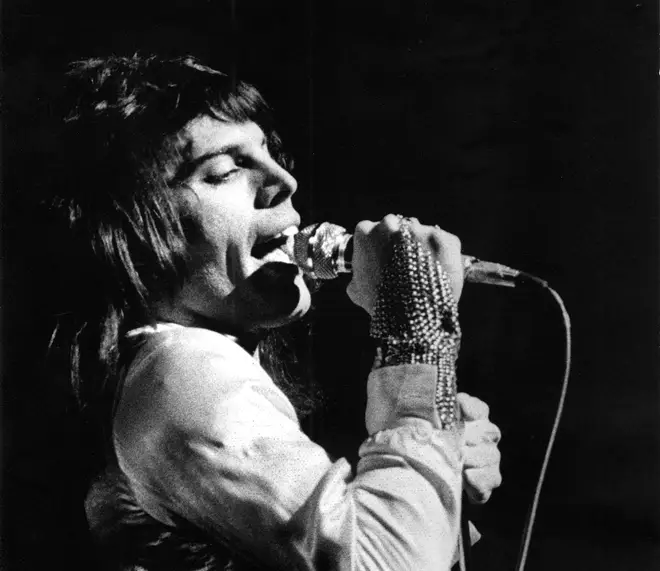
When was The Freddie Mercury Tribute Concert?
The Freddie Mercury Tribute Concert took place on Easter Monday, 20 April 1992 at Wembley Stadium, less than five months after the Queen frontman had passed away.
The likes of David Bowie, Elton John, George Michael, Liza Minelli, Annie Lennox, Seal, Slash, Lisa Stansfield, Bob Geldof famously took part.

Queen & George Michael - Somebody to Love (The Freddie Mercury Tribute Concert)
What is The Mercury Phoenix Trust?
The Mercury Phoenix Trust was set up by Queen members Brian May, Roger Taylor and their manager Jim Beach in memory of the iconic frontman Freddie Mercury.
According to their website, the organisation has since raised £17million for over 1500 projects in 57 countries and counting.
Freddie Mercury: The Final Act - Everything we know so far about the documentary
What was the lasting legacy of Freddie Mercury's passing?
Freddie Mercury is still considered a world-famous music legend and his legacy has continued to positively impact the AIDS crisis in countless ways.
CEO of the Terrence Higgins Trust, Ian R Green, wrote in the Metro: "Freddie wanted his death to save others and to galvanise people across the globe in the fight against HIV. And it did. His death heightened awareness, inspired action and – as importantly – raised a huge amount of money to fund research, support those affected and to educate."
Today marks 30 years since the world lost the incomparable Freddie Mercury to an AIDS related illness.
— Terrence Higgins Trust (@THTorguk) November 24, 2021
30 years gone, but never ever forgotten.
“If it could happen to Freddie, it could happen to me,” our CEO @ianrgreen remembers for @MetroUK.https://t.co/L4od2YmoN8
Thanks to research, being HIV positive is no longer a death sentence and those who contract it will live a normal lifespan if given the right treatment. Children can now be born without contracting to HIV positive parents.
The development of PrEP means millions of people can protect themselves from ever contracting HIV just by taking a pill, and those living with HIV on effective treatment are seeing their viral loads reduced to the point where they can no longer pass the virus on to others.
Plus, attitudes are changing too. In the 30 years since Freddie Mercury released his statement, more public figures have come forward to reveal they're living with HIV.
Everyone from US Basketball legend Magic Johnson to Welsh former rugby player Gareth Thomas have revealed their HIV status, with Pose star Billy Porter disclosing his HIV status just this year.
It's hard to quantify how much Freddie Mercury has influenced the fight against AIDS over the decades, but it's clear that the Queen frontman, and global figures like him have helped change the face of what was once a fatal disease.
For more information and support on HIV and sexual health, the following organisations offer support:
Terrance Higgins Trust
Positively UK
National Aids Trust




